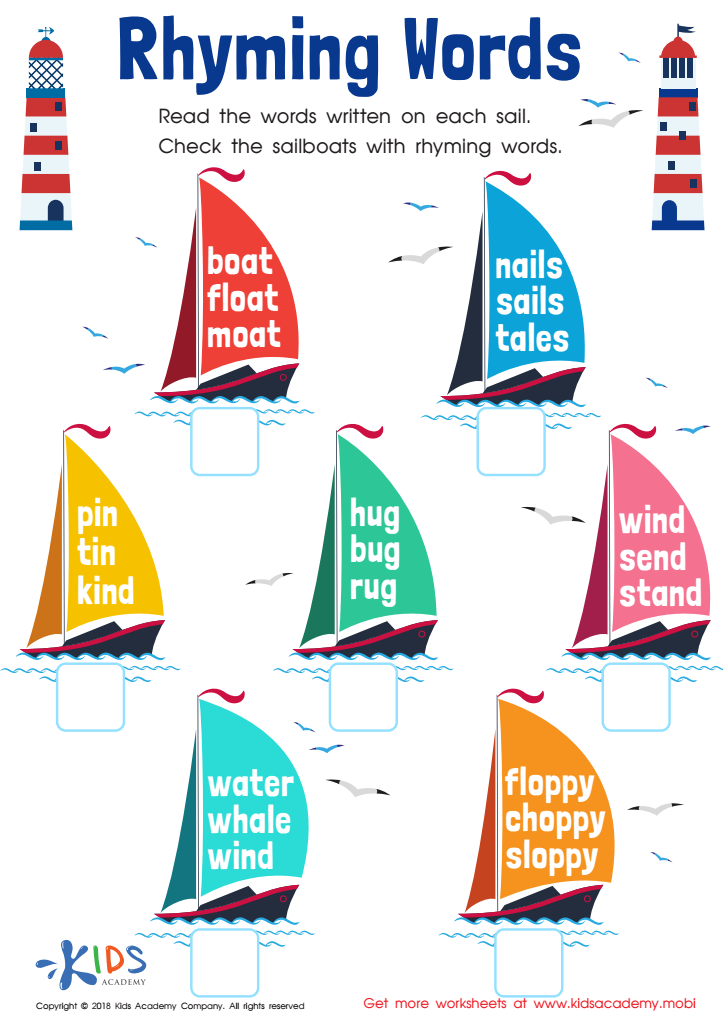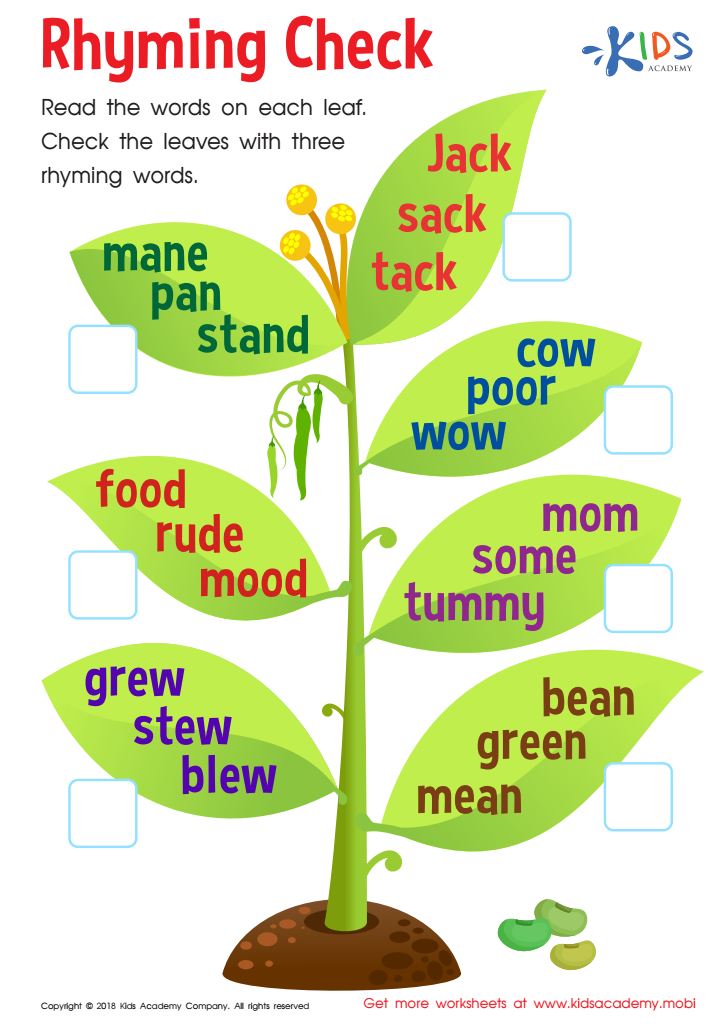Rhyming recognition Worksheets for Kids
2 filtered results
-
From - To


Rhyming Words Worksheet


Rhyming Check Worksheet
Question/Answer
How to test a Grade 2 student’s Rhyming recognition skills?
To test a Grade 2 student's rhyming recognition skills, you can ask them to identify words that rhyme with a given word, have them match pairs of rhyming words from a list, or ask them to generate their own words that rhyme with a specific word.
Why is the Rhyming recognition skill important for Grade 2 students?
Rhyming recognition skill is important for Grade 2 students because it supports the development of reading and phonemic awareness. By identifying and generating rhymes, students enhance their ability to recognize patterns in words, which aids in decoding and spelling. This foundational skill also improves listening and memory abilities, crucial for language development and literacy achievement.
How does the mastery of the Rhyming recognition skill affect a student's performance at an early age?
The mastery of rhyming recognition at an early age significantly boosts a student's literacy skills, including reading and phonemic awareness. This foundational skill helps children understand how language works, enabling them to predict and decode new words more efficiently.
 Assign to the classroom
Assign to the classroom











